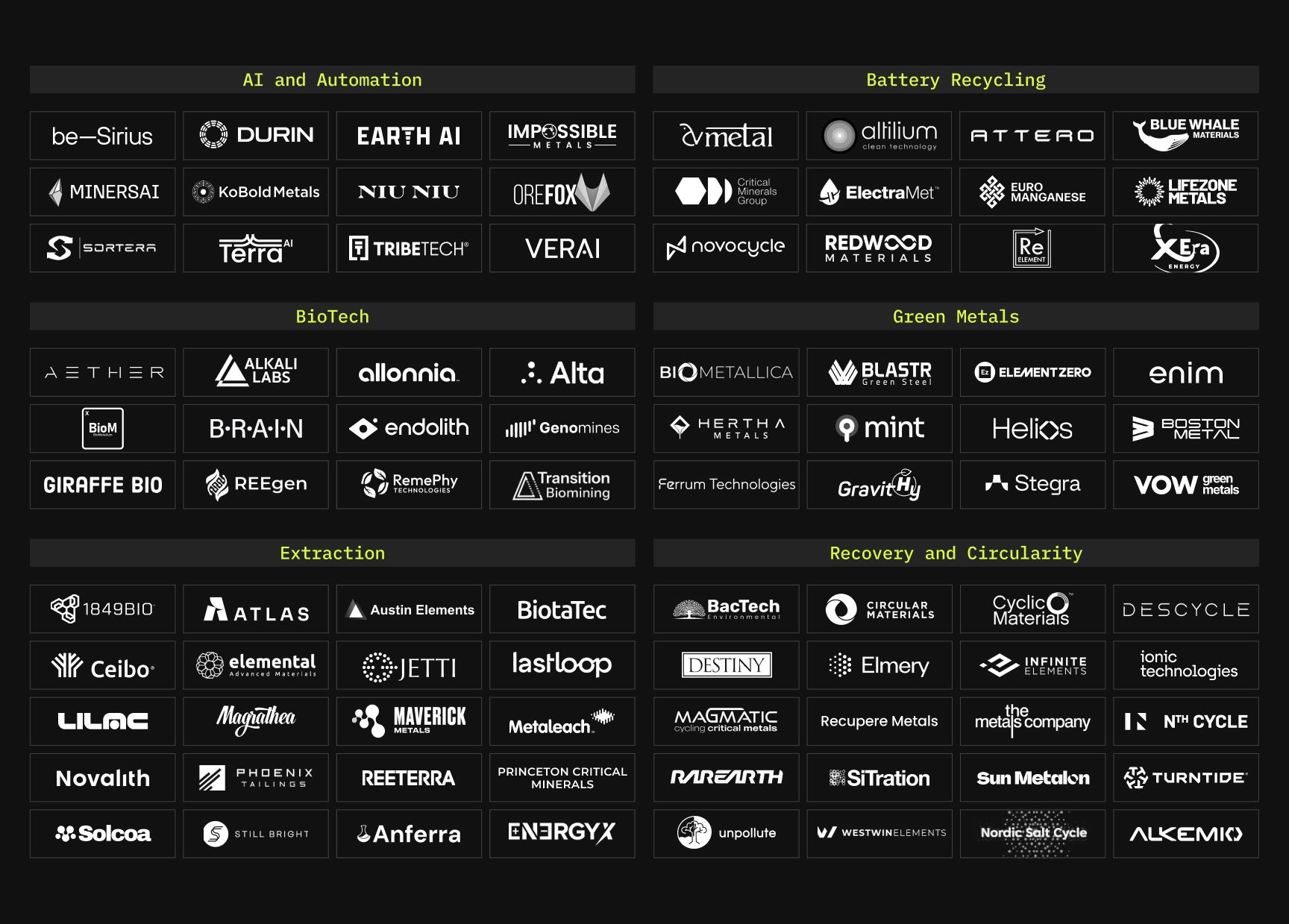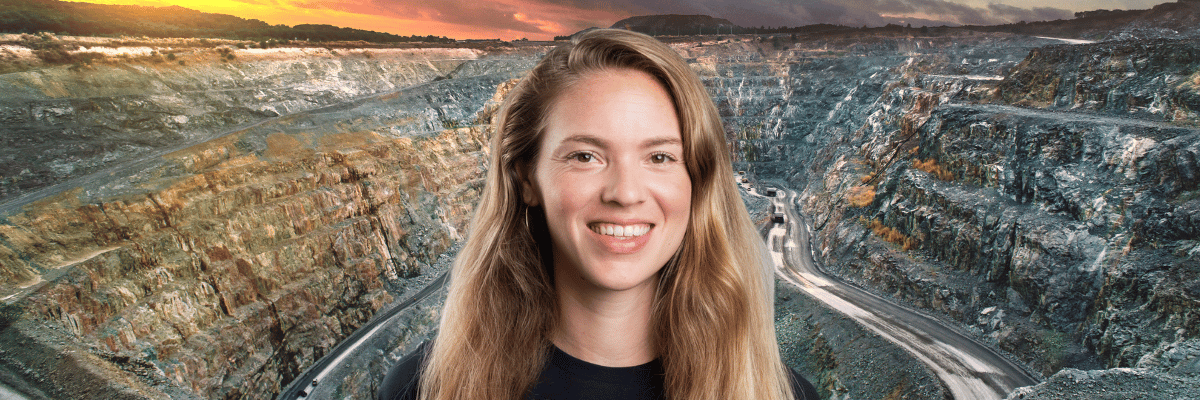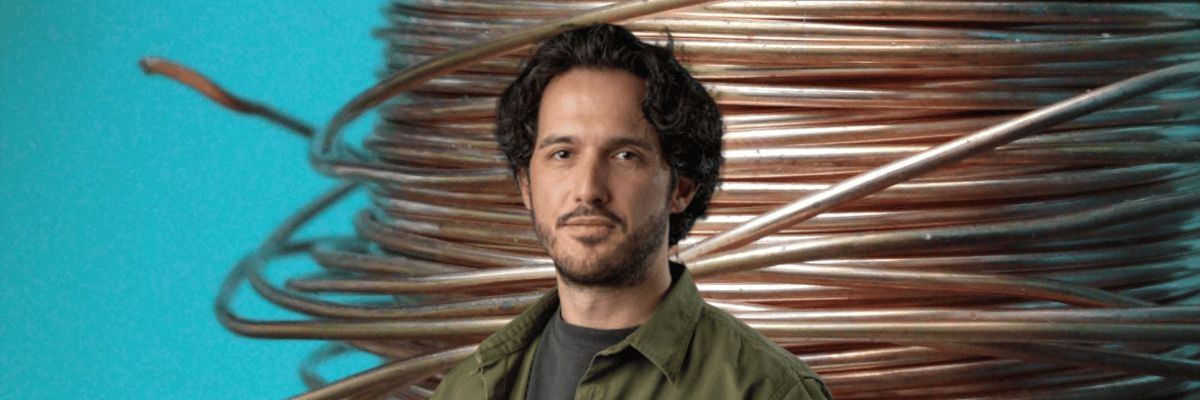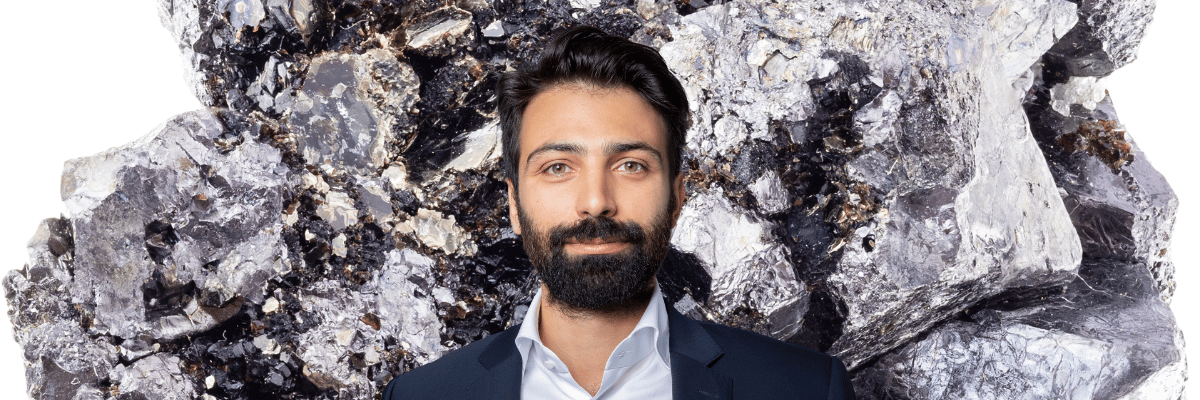The race for critical minerals is on. But how we extract them matters just as much as how much we find them and reuse them.
As demand for batteries, solar panels, and wind turbines surges, critical minerals like lithium, nickel, and rare earth elements are in the spotlight.
But traditional mining is no climate solution.
The sector is responsible for up to 7% of global greenhouse gas emissions as well as environmental damage, from habitat destruction to water contamination.
To meet climate goals without repeating the mistakes of the fossil fuel era, mining needs a fundamental reset.
That’s where ClimateTech comes in.
A new wave of 100 startups are rethinking every step, from cleaner extraction to more efficient refining, AI-powered exploration, tailings reuse, and transparent supply chains.
Scroll on down to discover:
6 investors give their take on the landscape
3 metals and mining Founders at HackSummit
A list of 100 metals and mining startups to know

We caught up with 6 active investors and advisors who are already backing the next generation of startups in the space and looking to make their next investment:
Minimising Supply Chain Risks

Due to its lack of primary resources, Europe is heavily reliant on imports for a significant portion of its raw materials, especially metal ores.
“To mitigate supply chain risks, sophisticated, price competitive recycling technologies must be adopted in the near future. This will yield a portion of the raw materials that are required to produce the batteries, magnets and solar panels that we desperately need to electrify our economies. We also have plenty of work to do on the processing and refining front, which is dominated by China. Here I see strategic opportunities for next generation electrochemical and solvo-metallurgical processes, especially in the context of lithium, copper, and rare earth elements (REEs) refining,” says Max Werny at Zero Carbon Capital
Enhanced Recovery of Critical Raw Materials

Innovative recycling methods for transition metals and critical raw materials are becoming increasingly important—especially in Europe, where securing and strengthening supply chains is a top priority.
“As demand for these materials continues to grow, driven by electric vehicles, renewable energy systems, and advanced electronics, efficient recycling will be essential. Innovative approaches such as urban mining, hydrometallurgical processing, and selective extraction are being refined to improve recovery rates and reduce reliance on primary resource extraction. These advances not only promote circularity and support local economies, but also help build a more resilient supply of critical materials,” shares Iris ten Have at Visionaries Tomorrow
Copper and Lithium in Latin America

Rich in untapped natural wealth, Latin America is emerging as a critical player in the global push for cleaner energy and boasts substantial reserves of critical minerals.
“The region accounts for 40% of global copper production, with Chile leading at 27%, followed by Peru at 10%. Additionally, Latin America holds significant lithium reserves, primarily in Bolivia, Argentina, and Chile, collectively known as the “Lithium Triangle.” Brazil contributes notably with 17% of global nickel reserves and substantial deposits of rare earth elements. These abundant resources position Latin America as a strategic hub for the global energy transition,” notes José Tomás Joglar at Sunna Ventures
Critical Minerals for the Energy Transition

The transition to renewable energy and electrification is driving a surge in demand for critical minerals like lithium, cobalt, and rare earth elements.
“Urban mining - recovering valuable materials from electronic waste and other post-consumer products - presents a scalable and sustainable solution. Companies like Niu Niu are leading the way by developing innovative processes for extracting minerals from unconventional sources, creating a circular supply chain that reduces environmental impact and dependence on traditional mining,” tells Andres Baehr at Savia Ventures
Rewiring the Metals Supply Chain

As demand for metals like copper, steel, and aluminum surges, new approaches are emerging to secure cleaner, local supply chains.
“We're excited about novel ways of maximising the resources we do have to meet the demands for metals and minerals for the energy transition. A good example of this is Recupure Metals, a Marble company. They are reimagining how copper can be supplied in the west: they take scrap copper and use their proprietary process to upgrade it, producing electrical grade wires that are as conductive as pure copper. By rethinking how we can make the most of the resources we do have available, we have a better chance of finding clean, sovereign solutions. We're excited to explore other novel approaches in the metals space - especially in steel and aluminium, both critical for scaling new climate infrastructure,” notes Jonny Everett at Marble
Advanced Materials and New Fabrication Processes

Engineered substitutes for traditional metals could reshape the industry by surpassing conventional metals in terms of critical material properties, including mechanical strength, toughness, and density.
"This transformation is driven by advances in solid-state metallurgy, electrified reduction processes that are free of carbon-based reagents, and the use of non-mined feedstocks. These technologies facilitate atomic-scale and process-level microstructural engineering to optimize performance, enhance decarbonization, improve cost efficiency, and strengthen supply chain resilience," concludes Leonardo Massa at MITO Technology
Mining and Metals at HackSummit

Metals and mining are at the core of the energy transition, but the way we find and extract them is overdue for innovation. At HackSummit, we’re spotlighting 3 founders reinventing the field from the ground up.
🦠 Liz Dennett is the CEO of Endolith, a microbial mining startup unlocking ways to recover critical minerals using microbes. With a background in biotech and energy, and a PhD in geomicrobiology and astrobiology, Liz applies synthetic biology and microbial innovation to increase recovery rates in copper and lithium while minimizing environmental impact.
⛏️ Romain Teslyuk is the CTO of EARTH AI, a high performance explorer for clean energy minerals by combining AI models and proprietary hardware to locate new deposits faster and with fewer drill holes. As a a geoscientist with 13 years mineral exploration and academic experience, Romain is building a vertically integrated system that links geoscience, machine learning, and robotics, to turn mineral discovery into a tech-driven process.
🪨 Ted Feldmann is co-founder of Durin, an exploration tech company rethinking how we search for hidden deposits. With roots in machine learning and geophysics, Ted is developing tools that cut time and cost from exploration campaigns and reveal opportunities others miss.
Together, they represent a new wave of DeepTech founders working at the intersection of geology, data, and biology to reshape the materials pipeline.
Join us at Newlab on December 10-11th to meet these and 100+ more DeepTech Founders.
100+ Metal and Mining Startups
Head this way to access the full database.
👋 Is someone missing? Fill out this form to add them instantly to the list.

